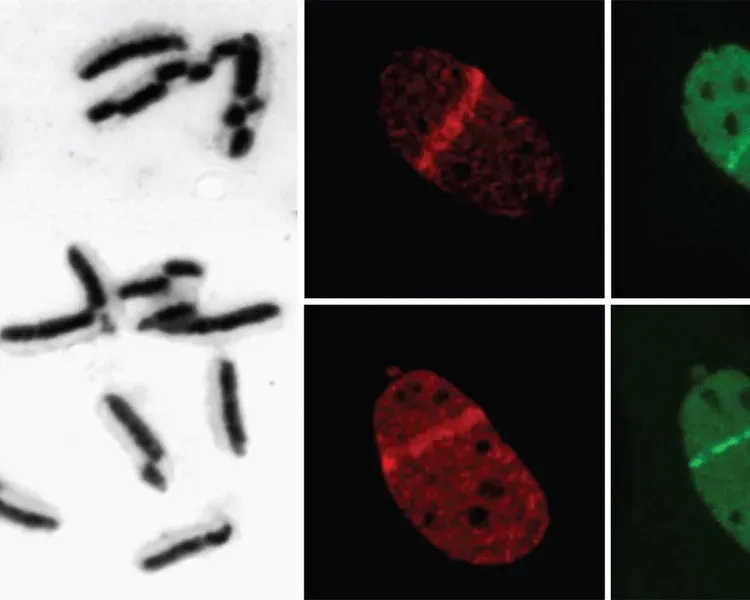Genome Integrity
We study molecular mechanisms that preserve genome integrity, support cell proliferation, trigger senescence and maintain cell identity. Defects in these mechanisms are central to the evolution and treatment of human cancer.

Maintaining genome integrity is one of the greatest challenges for all living creatures on Earth, in the face of constant attack from many endogenous and exogenous sources of DNA damage. Genome maintenance is remarkably efficient in eukaryotes, yet tumour cells are riddled with mutations and structural rearrangements in their chromosomal DNA, highlighting the importance of understanding the intimate links between genome integrity and human cancer.
We study the molecular mechanisms that allow cells to make a near-perfect copy of each chromosome during every cell cycle, repairing damage along the way, so that the two copies can be segregated faithfully during mitosis. We also study the regulation of key cell cycle transitions by phosphorylation and ubiquitylation, triggers for cellular senescence, and links between chromosome replication and the epigenetic establishment of cell identify. These processes underpin our understanding of human cancer development and evolution and suggest new ideas for anti-cancer therapies.
Head of Division
person

Deputy Head of Division
person

Key contacts
| Name | Role | |
|---|---|---|
| Fiona Ross | Lab Manager | [email protected] |
| Nancy Kirk | Lab Manager | [email protected] |
| Jenna Lyons | Division Secretary | [email protected] |

